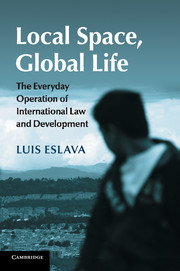Book contents
2 - Building the global from the local
Published online by Cambridge University Press: 05 August 2015
Summary
On Thursday, 8 September 2005, United Cities and Local Governments (UCLG), an international organization that represents the interests of more than 1,000 local administrations and municipal associations throughout the world, held a summit at the UN's headquarters in New York. The event was entitled Localising the Millennium Development Goals, and its diplomatic objective was to mobilise members’ support for the achievement of the MDGs. Around 500 local mayors attended the UCLG Summit. The 2005 World Summit, described as ‘the largest gathering of world leaders in history’ and as ‘a once-in-a-generation opportunity to take bold decisions in the areas of development, security, human rights and the reform of the United Nations’, took place a week later in the same venue. The preceding UCLG Summit thus affirmed the main aims of the organization: ‘increasing the role and influence of local government and its representative organisations in global governance’.
Instead of this second-hand description of the UCLG Summit, I wish I could have opened this chapter with a vivid and personal image of how the room was organized and the general feeling among the audience: microphones on, translation headphones activated and, displayed on walls, screens and letterheads, the iconography that graphically denotes the international for us today. Especially, I wish I had been there, listening to the murmur of the many voices, suddenly quieting down, before the main speaker, then-UN Secretary-General Kofi Annan (1997–2006), began his speech about the current importance of moving beyond the figure of the nation-state and pursuing the construction of a new global order from local jurisdictions. I would have felt that I was witnessing a ‘true’ international performance, albeit with some rather unusual characters: heads of local governments, instead of the usual diplomats of nation-states. However, I was not there. So, in the absence of a direct experience, I must turn to the official transcription of the speech delivered by Annan. And I do this conscious of what is implied when moving from a performance to its textual inscription.
That I am able to read Annan's speech exemplifies the extent to which our world is constructed as a normative project often enacted far away from the sites where its normative commitments are intended to take root.
- Type
- Chapter
- Information
- Local Space, Global LifeThe Everyday Operation of International Law and Development, pp. 56 - 90Publisher: Cambridge University PressPrint publication year: 2015



